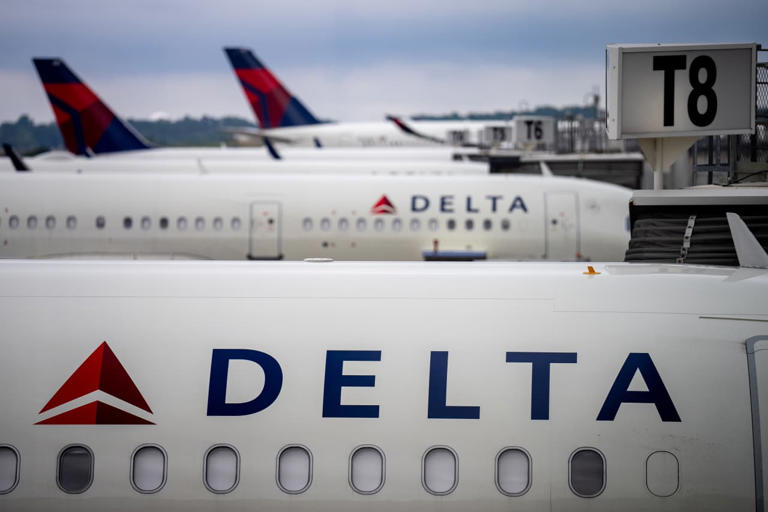Delta Air Lines faced significant investor disappointment on Thursday following its second-quarter earnings report, which failed to meet expectations and delivered a weaker-than-anticipated outlook for the third quarter. The legacy carrier’s stock plummeted by 9.1% as it reported earnings per share of $2.36, narrowly missing the $2.37 forecasted by analysts surveyed by FactSet. Similarly, Delta’s adjusted operating revenue of $15.41 billion fell short of Wall Street’s expectations, highlighting challenges in revenue generation despite operational efforts.
The primary concern among investors centered on Delta’s unexpected guidance for the upcoming quarter, with the airline projecting earnings per share between $1.70 and $2.00. This range was well below the consensus estimate of $2.04 among analysts, signaling potential profitability pressures in the face of ongoing market dynamics. Despite these figures, CEO Ed Bastian maintained confidence in Delta’s overall financial trajectory, reaffirming the company’s full-year guidance amid a turbulent operating environment.
Delta’s second-quarter performance reflected a notable 29% decline in profits compared to the same period last year, primarily attributed to heightened fuel costs and an oversupply of seats in the market. Bastian acknowledged these challenges, emphasizing industry-wide initiatives to curb capacity and restore market equilibrium by the end of August. This strategic adjustment aims to mitigate the adverse effects of excess supply, bolster operational efficiency, and enhance profitability in the coming quarters.
In response to Delta’s disappointing results, other major airline stocks also experienced significant declines in early trading. United Airlines saw its shares drop by 6.9%, American Airlines by 7%, and Southwest Airlines by 2.5%. The broader aviation sector faced heightened uncertainties, compounded by factors such as fluctuating travel demand and cost pressures related to fuel expenses.
Analysts from Melius Research highlighted Delta and United Airlines as notable exceptions within the industry, recognizing their resilience and strategic positioning compared to low-cost carriers like JetBlue and Spirit Airlines. These competitors have struggled with intense price competition, which has eroded their profit margins and contributed to financial challenges over the past year.
Looking forward, market analysts remain cautious about the aviation sector’s prospects for the remainder of the year. Factors such as fluctuating fuel costs, evolving consumer travel patterns, and external economic conditions continue to pose challenges for airlines worldwide. The upcoming 2024 Olympics in Paris and its potential impact on travel demand represent additional uncertainties that could influence industry performance in the near term.
Overall, Delta Air Lines’ recent earnings report underscores the volatile nature of the aviation industry amid broader economic uncertainties. It highlights the importance of strategic planning and operational flexibility in navigating complex market conditions. As airlines adjust their capacity and pricing strategies to align with evolving market dynamics, the ability to manage costs and optimize revenue streams will be critical in sustaining long-term profitability and investor confidence in the airline sector.
